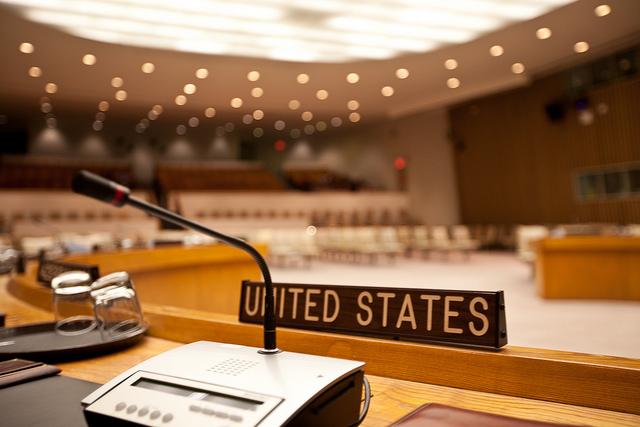The United Nations (UN) Security Council today unanimously adopted a resolution to create a special mission—the first ever geared to a public health crisis—to coordinate and help steer the increasing flow of global resources to battle West Africa's Ebola epidemic.
Addressing the council ahead of the vote, World Health Organization (WHO) Director-General Margaret Chan, MD, MPH, told the group, "The WHO has managed many big outbreaks, but this event is different. It's the biggest peacetime challenge we have ever faced."
"This is a threat to national security, beyond the outbreak countries," she said. The proceedings were webcast today on the UN's site.
David Nabarro, MD, senior UN system coordinator for Ebola disease, praised the work and contributions countries have made and will make and said what's needed is a strong backbone of support to coordinate the efforts.
The resolution had more than 130 member country cosponsors, which Samantha Power, US representative to the UN, said was the most for any of the 2,176 resolution since the the global body was created. "But it's what happens next that counts."
'We need your help . . . now'
Jackson Niamah, a Doctors without Border (MSF) treatment center coordinator who spoke to the group by live video from Monrovia, pleaded with the international community for help, and shared heartbreaking anecdotes about his coworkers dying of the disease, countless people dying alone from a humiliating disease, and a symptomatic child being turned away from the gate of a treatment center that was too full to take him.
He said the outbreak countries need staff for contact tracing, public awareness efforts, and treatment beds, but they also need basics such as soap and water, which some households don't have. "We need your help. We need it now."
Following the vote, representatives from Security Council members and several others detailed the contributions their countries have made and are considering. Australia's ambassador, Gary Quinlan, said he welcomed US leadership and spoke to the need for a massive global scale-up to the response. He said Australia is currently considering how it can best contribute to the effort.
Security Council members also heard from representatives of outbreak countries, including one from Liberia who called on countries that have closed their borders to reopen them to ease the response. He said the closures "border on blanket stigmatization."
Ebola infections top 5,000
Meanwhile, the WHO today said the number of Ebola virus disease (EVD) cases in West Africa as of Sep 14 has grown to 5,335, with deaths rising to 2,622. Global health officials have said the official numbers greatly underestimate the true impact of the disease. The number includes 372 more infections and 169 more deaths since the WHO's last update just 2 days ago.
Much of the increase has been driven by steady increases in Liberia's and Sierra Leone's capitals, though infections appear to be decreasing in Guinea due to a drop in the number of cases from Macenta, which has been one of the outbreak hot spots.
In other hot spots, the number of new cases hints at a possible stabilization in Liberia's Lofa county and Sierra Leone's Kailahun and Kenema districts, according to the WHO. However, the agency said cases have increased in a number of other Sierra Leone districts.
The WHO also outlined the pressure the disease is placing on treatment center capacity. It said Liberia's 315-bed capacity is meeting less than 20% of the demand. It said Monrovia needs 1,210 beds, but only 240 are currently available. Sierra Leone has only 165 beds, which meets 25% of the country's demand.
So far 318 healthcare workers, one of the hardest-hit groups, have been sickened in the outbreak, and 151 have died from their infections, the WHO said.
Burial teams in Liberia are overwhelmed, with teams handling 10 to 15 dead bodies each day, the WHO said. More teams are being formed to assist with safe burial, with six more teams being trained to work in Monrovia, which would double the number.
The WHO said its African regional office just completed a response plan for unaffected countries in the region, which will receive support to reach EVD outbreak readiness goals.
See also:
Sep 18 Margaret Chan speech before the UN Security Council
Sep 18 WHO Ebola roadmap update

















